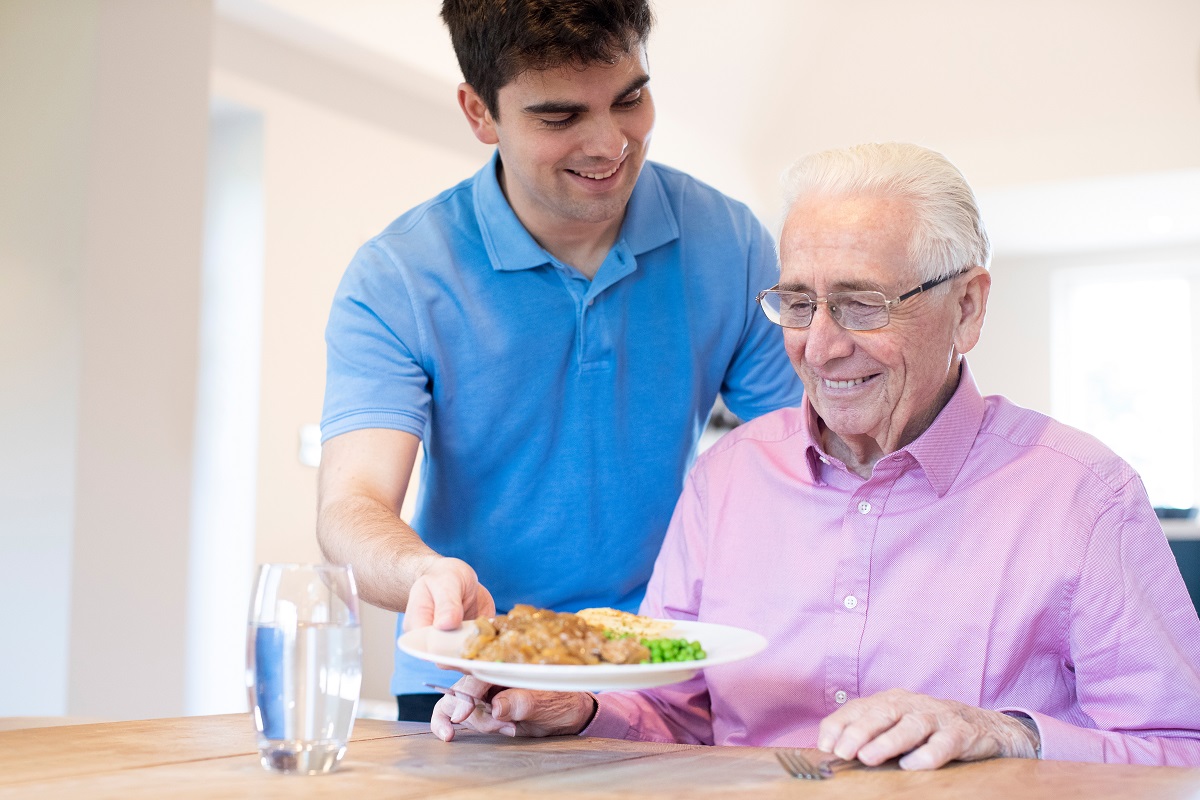If a friend or relative has been diagnosed with dementia you might not know what to say when you see them. Maybe you’re avoiding them because you feel awkward, upset and afraid of ‘saying the wrong thing.’ So we asked people on the dementia journey for some tips to help you overcome any nervousness and show that you still care.
Warning: The phrases below are often said with the best of intentions so if you’ve ever used any of them yourself, don’t feel bad, just try to avoid them in future.
You’ve got to fight it
Why? Dementia isn’t a battle, it’s a disease and it’s entirely up to the person who has dementia how they choose to deal with it. Maybe all they want to do is cry, particularly in the days after diagnosis. ‘I spent two months sitting on the sofa at home, feeling mostly suicidal,’ recalls Joy Watson who was diagnosed with Alzheimer’s on her 55th birthday. ‘I was on anti-depressants, grieving for all I’d lost and worrying about my future care. I didn’t want to live anymore.’ Being told to ‘fight it’ would not have helped Joy one bit. Her depression did lift eventually, but it took time. ‘Quite suddenly, I had a change of heart and thankfully came around to more sensible thinking,’ she recalls.
My memory is terrible as well
Many people make comments like this because they think it might help a person with dementia to feel better. It rarely does. Forgetting where your keys are or losing your glasses isn’t the same as having dementia. Trying to suggest it is even vaguely similar not only belittles their experience, it also shows that you don’t really have a clue what they’re going through. ‘Your forgetfulness is nothing like mine,’ says Joy. Imagine if someone told you they were recovering from life-threatening pneumonia which has left them feeling exhausted, and your response was; ‘I had a cold last week and I’m feeling really tired too.’ Not the same, is it?
Have you heard about this new cure? You should ask your doctor about it
Almost every week there’s a story in the press about another dementia ‘breakthrough.’ Whilst positive news about dementia is always encouraging, if you read these stories carefully (which anyone on the dementia journey will, we promise) you’ll find they’re usually slightly exaggerated – especially the headlines – and are often based on a promising piece of research, or are the results of a new study. ‘I grew so tired of people telling me about miracle cures they’d read about, sometimes they even cut stories from magazines to show me,’ says Sarah, who cared for her mother with dementia. ‘I know they meant well, but it became really irritating after a while.’ Most experts believe we are around 20 years away from a truly significant breakthrough (which will probably be some sort of disease modifying drug). When that does happen, people on the dementia journey will have something to celebrate and it’s highly likely they’ll be talking to their doctors about it too…
What to say instead
You don’t have to say anything clever, witty or wise. Instead try;
How are you doing?
A simple open question like this allows the person with dementia to decide for themselves how much they want to reveal. If they don’t want to talk about it right now, they might simply say ‘I’m fine’ -and in the early stages of dementia many people are perfectly fine and quite capable of carrying on their lives as normal. Or they might want to tell you the whole story of their diagnosis and how they feel about it. Whichever they decide, just listen.
Can I drop in and see you? I’ll bring cake!
It can be very upsetting for someone with dementia to feel that their friends are deserting them so don’t be afraid to make the first move. But if they aren’t in the mood for a visitor, don’t take it to heart, just keep trying.
I don’t really know what to say except I’m here for you
Your honesty will be appreciated. This sort of comment also makes abundantly clear that you care about them and want your friendship to continue no matter what. And this, above all else, is probably what they want most of all.
SHARE
Explore more




